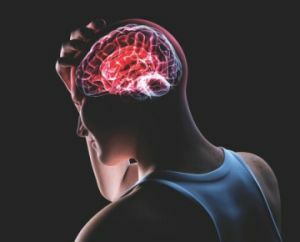 The use of psychoactive substances and addiction is a significant burden for individuals and society, in general, throughout the world.
The use of psychoactive substances and addiction is a significant burden for individuals and society, in general, throughout the world.
In the World Health Report 2002, it was shown that 8.9% of the total number of central nervous and cardiovascular diseases comes from the use of psychoactive substances.
The Report indicates that tobacco accounts for 4.1% of cases, 4% fall on alcohol, 0.8% for illicit drugs.
In addition, there are allegations that substance use and dependence leads to a wide range of medical and social problems, including HIV / AIDS, which are the result of injecting drug use in many countries.
Contents of
- Body and alcohol - how it acts on the brain and organs
- Alcohol intoxication - in what way does it manifest itself?
- Effect of alcohol on the nervous system immediately after consumption
- Long-term effects of alcohol on the brain and CNS
- Body and nicotine - how it acts on the brain and organs
- Nicotine intoxication
- Emergency effect of nicotine on the human body
- Long-term exposure to nicotine on the nervous system
- Recovery aftereffects of alcohol and nicotine
Body and alcohol - how it acts on the brain and organs
Long-term alcohol abuse damages not only the liver, but also results indamage to other organs and systems of organs, including the brain and peripheral nerves, the heart and even affects the development of certain types of cancer.
The effect of alcohol on the nervous system and the brain is represented, first of all, by a reduction in the number of neurotransmitters. It's about substances that impart impulses to muscle tissue from neurons.
The consequence of this is the characteristic signs of alcohol intoxication: confusion and speech impairment, coordination of movement disorders and others. Alcohol intoxication - in what way is it manifested?
If the concentration of alcohol in the blood is above 1 g / l, inhibition of balance is inhibited, drowsiness occurs at concentrations above 2 g / l, and if the concentration is higher than 4 g / l, a person is threatened with mental disorders and death.
And also the effect of alcohol on the brain and nervous system manifests itself in the following way:
- a person loses coordination of movements, his face is redder, articulation problems arise, vomiting, convulsions, drowsiness may appear;
- at a higher concentration of alcohol may occur coma and sopor;
- alcohol intoxication is characterized by an accelerated pulse and weak, shallow breathing, dilated pupils( sometimes with blood capillaries);
- toxic substances depress the central nervous system and lungs, there is a violation of blood circulation, which leads to insufficient oxygenation of the brain;as a result, important centers are damaged( the most dangerous situation is for a young developing organism) or even death;
- is disturbed by the regulation of heat, which threatens to supercool, after a few hours in a cold environment can reach frostbite.
Effect of alcohol on the nervous system immediately after its consumption.
Alcohol simulates the effect of many drugs. It acts like cocaine and amphetamine. Causes a feeling of excitement. At the same time,  because of its consumption, there are feelings, similar to sensations after using Valium and other medicinal soothing agents.
because of its consumption, there are feelings, similar to sensations after using Valium and other medicinal soothing agents.
This leads to inhibition of reaction and anxiety. Alcohol mimics the action of anesthetics, than it breaks the connection between the body and the mind.
This is a kind of betrayal of the body - a person feels confident, but unable to act.
Long-term effects of alcohol on the brain and CNS
With the help of computed tomography and magnetic resonance imaging, it was possible to repeatedly prove that people who use high doses of alcohol and alcoholics suffer the most and reduce the frontal( anterior) region of the brain.
In addition, it was found that alcohol affects a certain area of the hypothalamus, which is responsible for feeling thirsty. Because of this, after drinking more and more you want to drink.
Damage to peripheral nerve cells( ie cells outside the brain and spinal cord) and, especially, their death is manifested by numbness, tingling and, in the final phase, pain in the limbs. In neurology, this phenomenon is called neuropathic pain.
Neuropathic pain is also present, for example, with diabetes or other metabolic disorders.
Body and nicotine - how it acts on the brain and organs
Nicotine has an effect on receptors in the connective areas of the brain nerve cells and muscle cells. This leads to a breakdown of nerve impulses that control the muscle tissue, vessels and other organs.
Nicotinic intoxication
 Nicotine is a mitotic poison that affects the cell nuclei. One cigarette contains about 10 mg of nicotine - the smoker inhales an amount of 1 to 3 mg.
Nicotine is a mitotic poison that affects the cell nuclei. One cigarette contains about 10 mg of nicotine - the smoker inhales an amount of 1 to 3 mg.
The lethal dose is 50-60 mg, i.e.smoking a 15 to 20 cigarettes, the smoker receives a lethal dose. There is practically no lethal poisoning;a certain role in this is the adaptability( adaptability) of the organism. In addition, the smoker does not smoke the entire pack at once, so the content of alkaloids eventually has time to neutralize.
Nicotinic poisoning is characterized by the emergence of the following symptoms:
- dilated pupils( mydriasis), rather, initially comes to the narrowing of the pupils( miosis), and then - to their considerable expansion;
- pallor;
- cold sweat;
- severe nausea and vomiting( after vomiting, usually, relief comes);
- diarrhea( diarrhea);
- increased salivation;
- dizziness( vertigo);
- confusion( amenia);
- is rare, but sometimes visual or auditory hallucinations occur;
- headache( severe);
- heart palpitations( tachycardia);
- possible cramps;
- with a high dose of nicotine( above 50 mg) there are problems with breathing, impaired consciousness, and in extreme cases - a possible fatal outcome.
Emergency effect of nicotine on the human body
Nicotine enters the human body by inhaling cigarette smoke into the lungs( or by consuming cigarette substitutes -  nicotine patches, chewing gums, candies, electronic cigarettes, etc.).
nicotine patches, chewing gums, candies, electronic cigarettes, etc.).
On a dense and branched network of blood vessels, it subsequently enters the bloodstream and into the brain. The spread of this substance is very rapid, nicotine easily crosses the blood-brain barrier, so that, 10 seconds after the first inhalation of cigarette smoke, nicotine enters the brain.
The lungs of a person consist of millions of alveoli - small air pockets, where the transformation of gases takes place. Alveoli have an incredibly large surface - in the "decomposed form" they would occupy 19 times the surface larger than all the human skin and, thus, provide nicotine and other components of cigarette smoke with plenty of space to penetrate the body.
Long-term exposure to nicotine on the nervous system
The most important alkaloid of tobacco smoke is nicotine, which is in a cigarette in the amount of 1 to 4 mg. A few seconds after drawing smoke into the lungs, it flows through the blood to the brain, where it takes specific nicotinic receptors.
Nicotine also binds to receptors in the peripheral and autonomic nervous system, which controls the internal organs.
Effects of nicotine on the human body:
- increased gastrointestinal tract activity;
- increased production of saliva;
- increased production of digestive juices and increased activity of smooth muscles( which are present, practically, in the entire gastrointestinal tract);
- increase in blood pressure;
- acceleration of cardiac activity, less often reaches cardiac arrhythmia;
- narrowing of blood vessels;
- increase in the content of fatty acids in the blood;
- inhibition of estrogen synthesis;
- increase in sweat production;
- possible narrowing of the pupils;
- with long-term consumption may reach an increase in the synthesis of endorphins.
In the first stage, nicotine causes stimulation, then comes to the stage of moderate weakening. Nicotine causes changes in the functionality of the brain and body.
This two-phase effect is not unusual, although the effects of nicotine and ethanol in the human body are different, a similar outcome, depending on the amount of substances taken, can also be observed when consuming alcoholic beverages.
Nicotine initially causes a rapid release of the adrenaline hormone. The main symptoms of this include:
- heart palpitations;
- increased blood pressure;
- rapid, shallow breathing;
- adrenaline also controls the release of glucose in the blood.
In addition, adrenaline may block the production of the insulin hormone, which means that after receiving nicotine, people have increased glycemia, i.e. More sugar is circulating in the smoker's blood than usual. In addition, nicotine accelerates the basic metabolism. This means that the body burns far more calories than usual.
Recovery after exposure to alcohol and nicotine
 With prolonged alcohol consumption, 20% of the neurons( nerve cells) in this area are destroyed! The process is partially reversible - the brain during prolonged or lifelong abstinence from the harmful effect has the possibility of partial increase, dead neurons, however, will never resume, because after birth, the ability of a person to form new neurons very quickly weaken.
With prolonged alcohol consumption, 20% of the neurons( nerve cells) in this area are destroyed! The process is partially reversible - the brain during prolonged or lifelong abstinence from the harmful effect has the possibility of partial increase, dead neurons, however, will never resume, because after birth, the ability of a person to form new neurons very quickly weaken.
With strict abstinence from alcohol, partial restoration of mental abilities, to a certain extent, is possible. The brain uses up to this time unused neurons, and they will take on the functions of neurons already dead. Compensation, however, is never one hundred percent.
Complete recovery of the body after exposure to nicotine, as in the case of alcohol, is unlikely, it is possible. But the maximum improvement in the condition of cells and organs, as well as health, as a whole, is quite possible. This is a long and time-consuming process, because, in addition to nicotine, cigarette smoke contains a large amount of addictive drugs.
Already after 12 hours after the last cigarette, breathing normalizes. Improvement of the immune system occurs in a month. After 10 months, the lungs are completely cleared.



